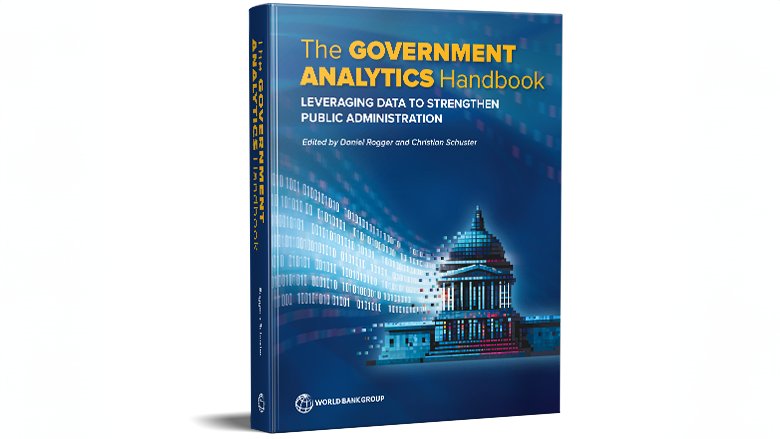ABOUT THE FELLOWSHIP
The World Bank Government Analytics Fellowship is a pioneering initiative designed to bridge the gap between the vast, yet underutilized, data resources held by governments and the potential for enhanced public administration efficiency through data-informed decision-making. The Fellowship was launched in 2024 as a collaboration between the World Bank Development Economics Vice-Presidency (DEC), the Governance Global Practice (GGP), the Development Impact Group (DIME) and academic collaborators, including at University College London.
Does the Fellowship align with my interests?
The Government Analytics Fellowship is targeted to mid-level managers or senior analysts in central government organizations that are passionate about the enhancement of public administration through data-driven solutions. Does this sound like you? Apply and be part of a global movement to reimagine government through the lens of data analytics.
What gives my application the best chance to be chosen for a fellowship?
We are looking for projects that are clearly related to the repurposing of government administrative and survey data for use in diagnosing and strengthening public administration. The closer your proposal, project, and role is to those activities, the more likely your application is to be successful. This means, for example, that if your project is closer to analysis of health policy, rather than health administration, or tax policy rather than tax administration, it is less likely to be successful. The fellowship focuses on analytics of administration rather than policy. It also means that we are looking for indication that the data needed for your project is available (e.g. in administrative records) or can be plausibly collected as part of the fellowship (e.g. through surveys).
We are also looking for a strong signal of support from an applicant’s organization, that their project is something that will be valuable to the strengthening of its administration. This signal is communicated in the letter of support that accompanies a fellowship application. This ensures that the applicant has the support of their organization and management.
What resources are available to support my understanding of what government analytics is?
The Government Analytics Handbook begins with an overview of what government analytics is and is not. Reading the first chapter of the Handbook will give you a broad understanding of what government analytics involves. The most important aspect of government analytics is that it is targeted at strengthening the administration of government. We also have a video that acts as an introduction, as well as a series of videos on the Handbook web site.
We are building an online version of the Government Analytics course and will make this available in early 2025. As such, if your application is unsuccessful in this round, you will still have access to many of the insights from the fellowship.
Will there be another fellowship after this one?
We aim to offer a fellowship with a DC-based component every year. We are also exploring options to have regional fellowships, and country communities of practice. Please contact us if your organization would be interested in supporting such extensions, financially or otherwise.
ABOUT ELIGIBILITY
I am a government official. Am I eligible for the Government Analytics Fellowship?
To be considered for the Government Analytics Fellowship, applicants must be employed by a central government organization (including agencies) in a mid-level manager or senior analyst position (or equivalent) with authority to develop a government analytics project. So, if you meet these criteria, you are eligible.
I am a current graduate (Master or PhD) student. Am I eligible for the Government Analytics Fellowship?
To be considered for the Government Analytics Fellowship, applicants must be employed by central government organizations (including agencies) in a mid-level manager or senior analyst position (or equivalent) with authority to develop a government analytics project.
We suggest you keep an eye out for our online course in the future. If you would like to receive more information, please subscribe to our Development Impact newsletter.
I am a faculty member. Am I eligible for the Government Analytics Fellowship?
To be considered for the Government Analytics Fellowship, applicants must be employed by central government organizations (including agencies) in a mid-level manager or senior analyst position (or equivalent) with authority to develop a government analytics project.
We suggest you keep an eye out for our online course in the future. If you would like to receive more information, please subscribe to our Development Impact newsletter.
I work for a private or non-profit organization. Am I eligible for the Fellowship?
To be considered for the Government Analytics Fellowship, applicants must be employed by central government organizations (including agencies) in a mid-level manager or senior analyst position (or equivalent) with authority to develop a government analytics project.
We suggest you keep an eye out for our online course in the future. If you would like to receive more information, please subscribe to our Development Impact newsletter.
ABOUT TIME COMMITMENT
What is the time commitment expected of a fellow?
The fellowship is hybrid and spans 6 months. The in-person portion is expected to last 2 weeks and will require full-time commitment from the fellows, as this is held in Washington D.C. The online portion is expected to be light on time commitment, with an average of 1 hour per week. These online sessions will be held live.
ABOUT LOGISTICS
For the in-person part of the Fellowship, are fellows expected to cover their travel and accommodation?
Participation in the World Bank Government Analytics course in Washington D.C. includes hotel, travel, and subsistence covered by the World Bank, for applicants from ODA-eligible countries. Further details on award of fellowship.
For the in-person portion of the Fellowship, when are fellows expected to arrive in Washington D.C.?
Fellows should arrive no later than March 17th.


